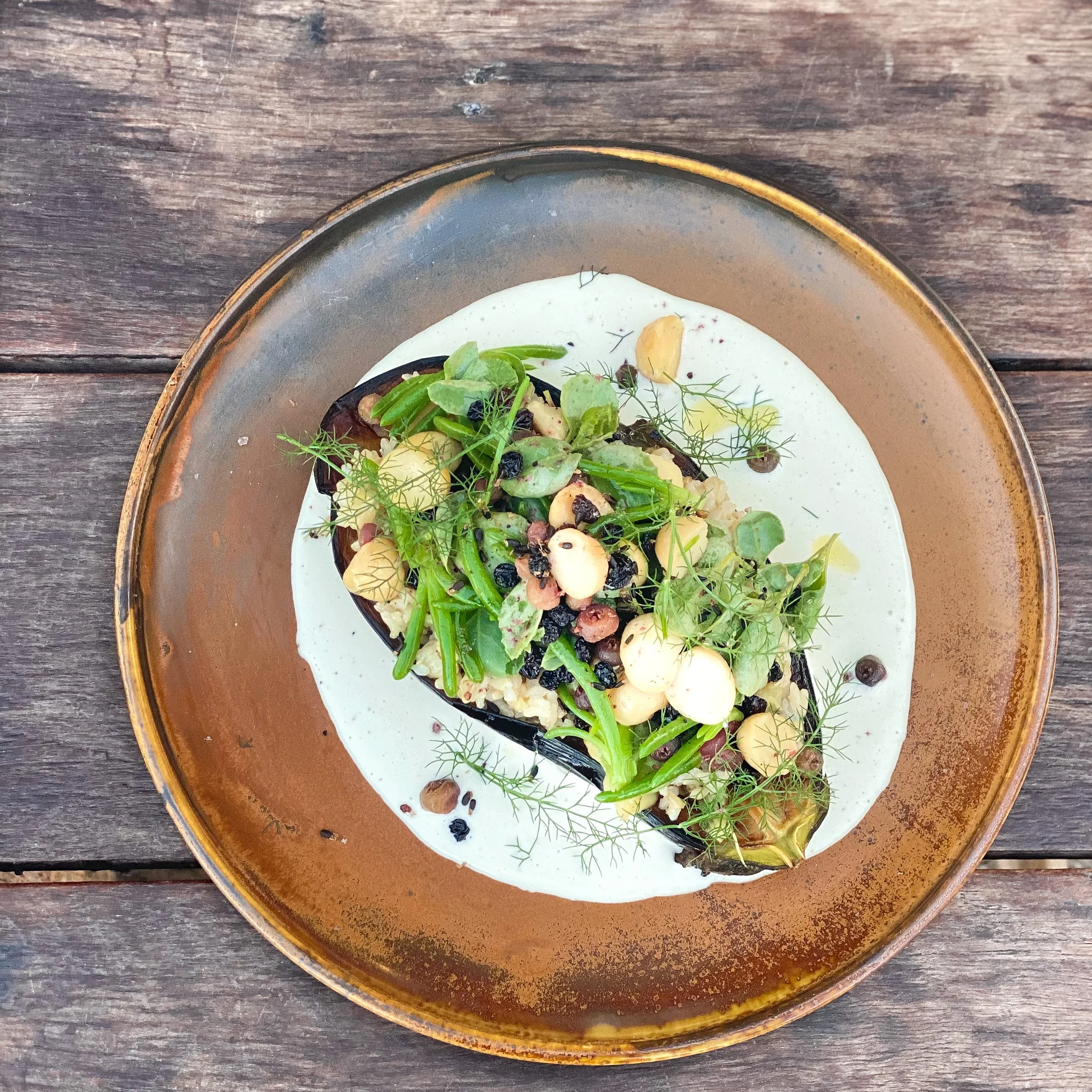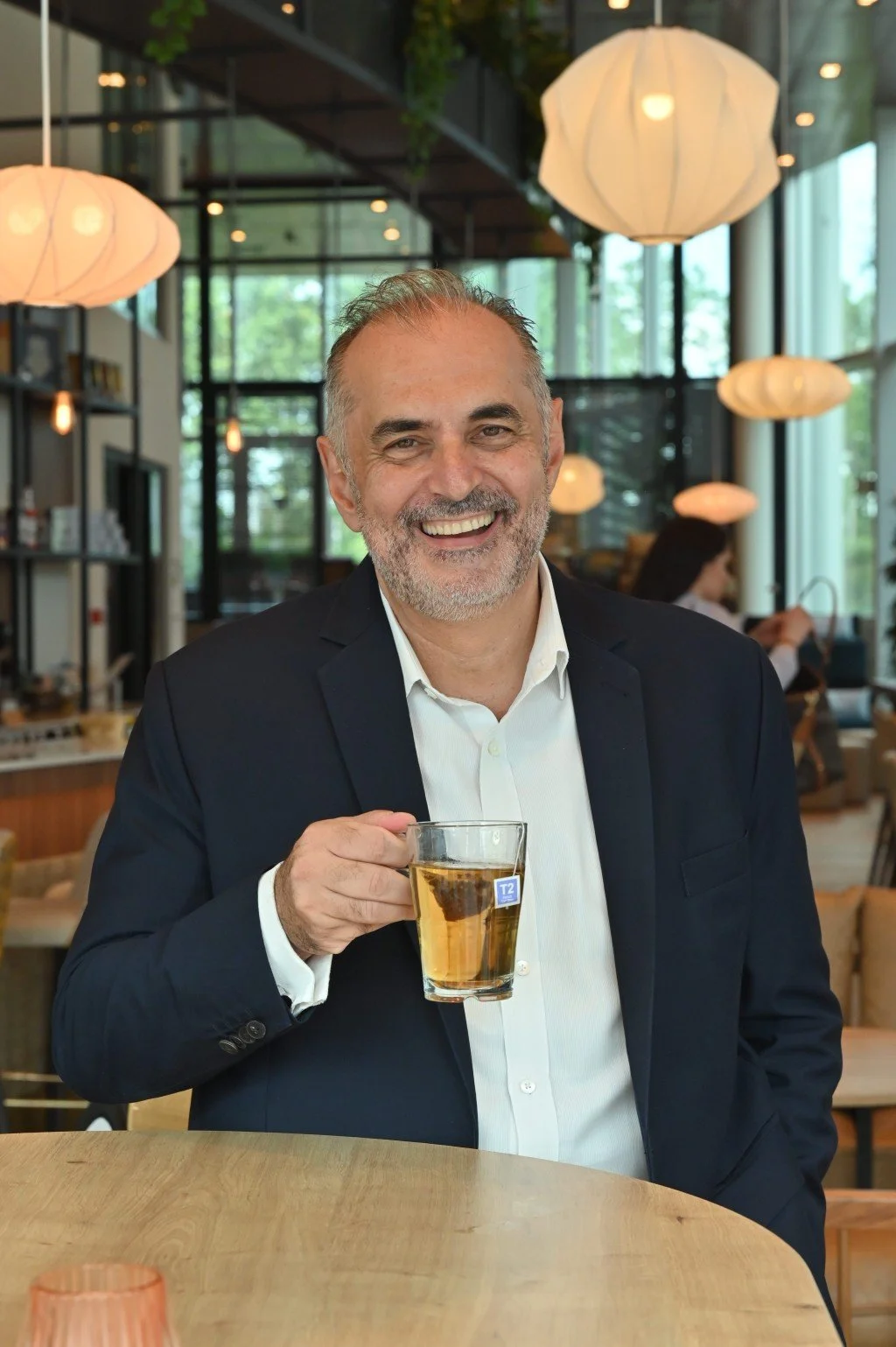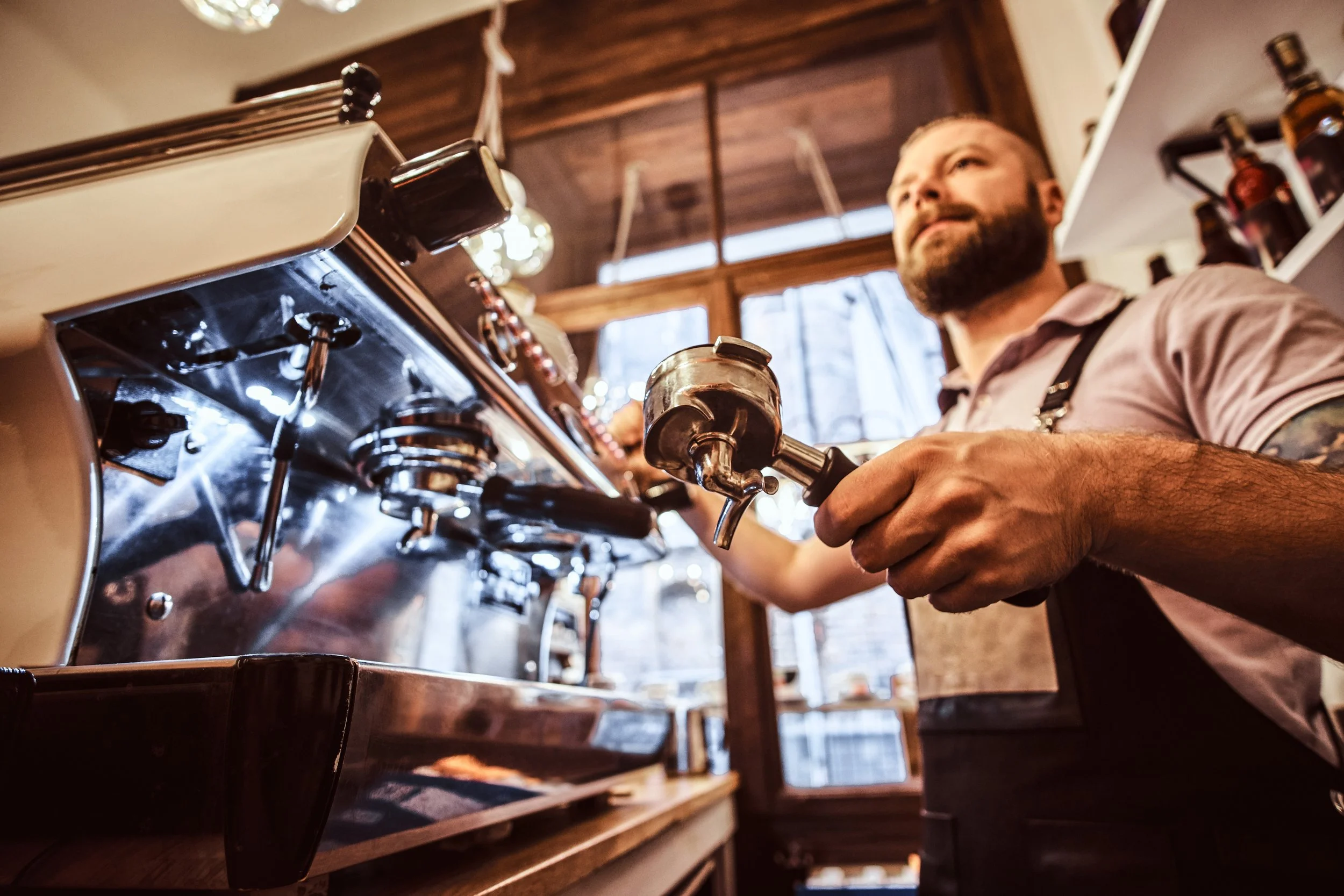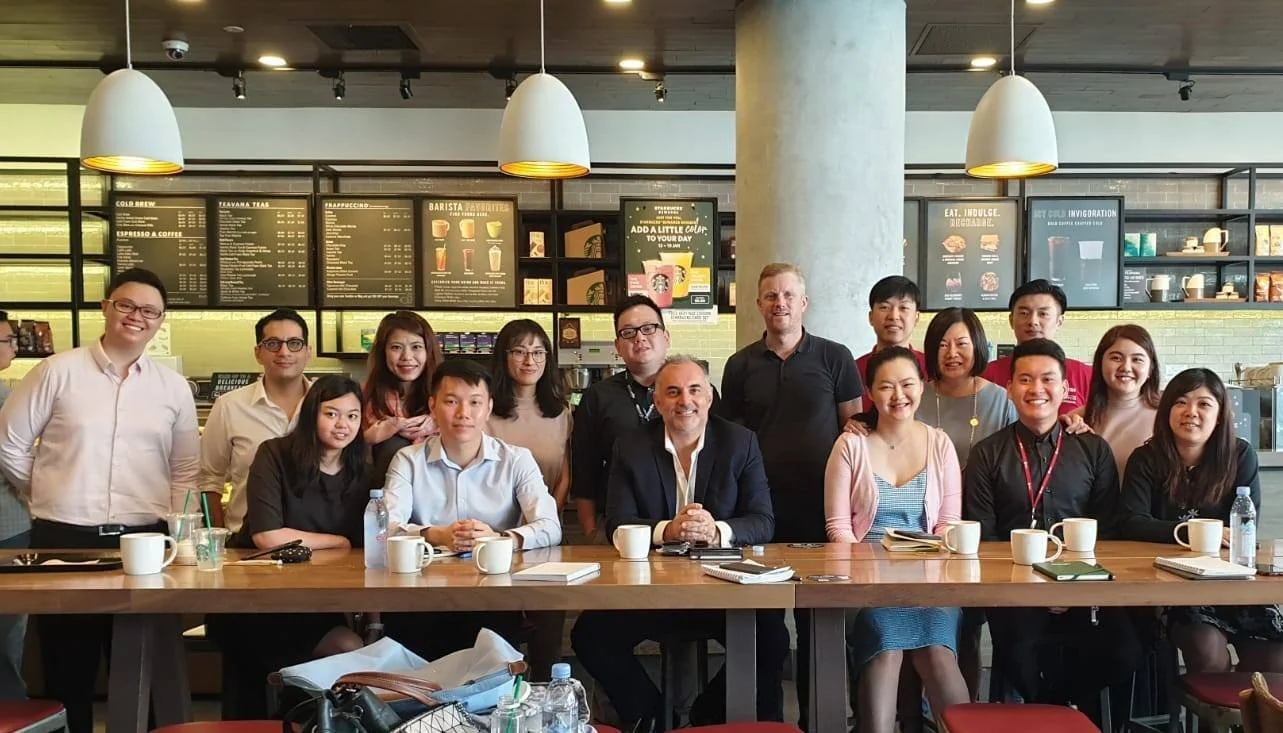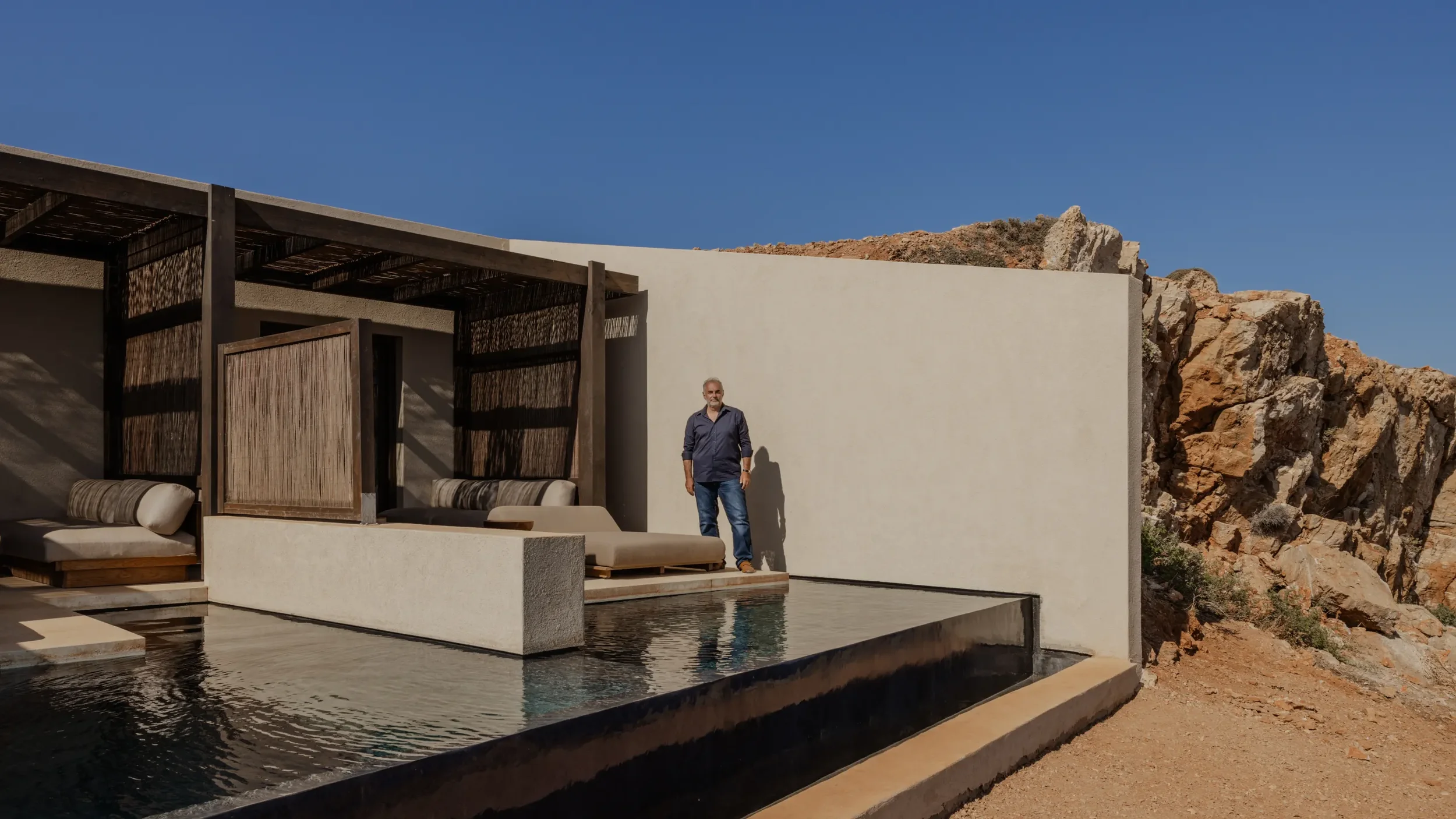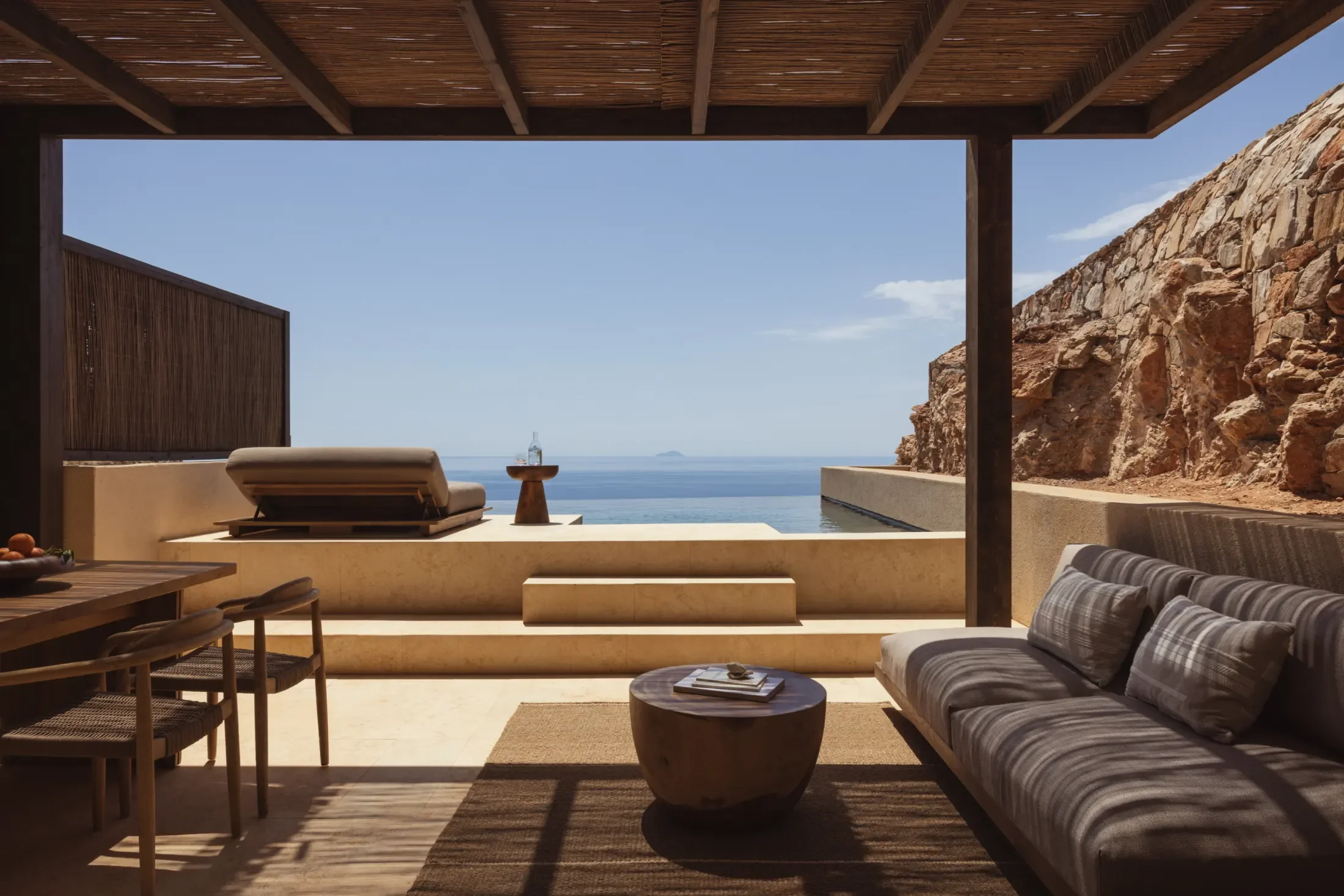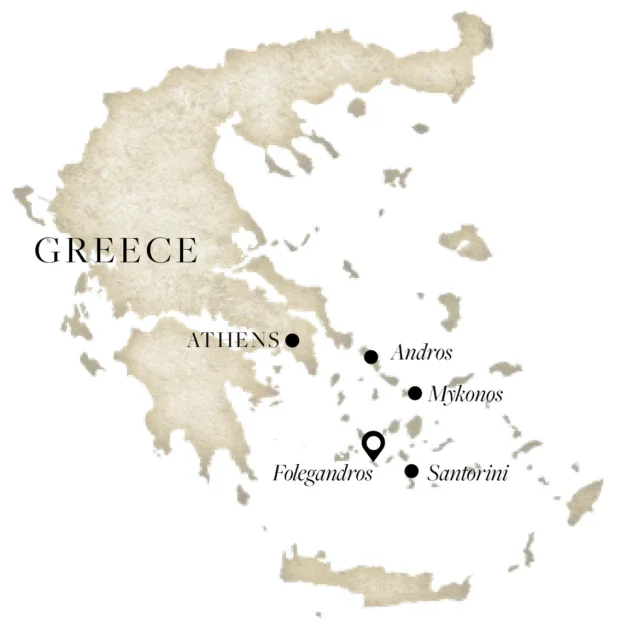Terry Seremetis: brewing ideas and building dreams
/Terry Seremetis is a seasoned hospitality industry professional whose remarkable career journey includes such highlights as introducing baristas to Sydney’s coffee scene, working for major players including Vittoria Coffee, Campbell’s, Mars, Douwe Egberts and DKSH, and even co-founding a five star Greek Island resort. Currently he’s based in Asia as President, Enterprise Markets for Lipton Teas and Infusions, but his hospitality origins can be traced back to growing up in Sydney, where his family emigrated from Greece in 1974.
Listen to the podcast
“My brother had been born in Melbourne on a previous trip to Australia, I was born in Athens, and then we came back to Australia to settle in Sydney,” Terry recalls. “I couldn’t speak a word of English when I went to school, in fact I went with my Greek name in the morning and by the afternoon it had been changed to Terry. For me Australia was a new frontier – a place that felt full of promise and a new beginning for my family. I remember those times very fondly because I immediately felt very comfortable, welcome and at home.”
Terry Seremetis
“What interested me was how we get everyone to lift our game and be more attentive to guest and consumer needs”
Originally thinking he might be a priest, Terry then considered a career as an architect but along the way discovered the hospitality industry and realised he had a passion for marketing. “I think I carry some of those different elements within me today – the spiritual, the planning and design and the problem solving. It’s all incorporated into the way I look at things.”
Initially working on the front desk for a hotel group, he displayed a natural flair and was soon made a corporate trainee: “I understood it was about creating the best experience for our guests and I began having discussions with management about how we maintain standards when staff move on. What interested me was how we get everyone to lift our game and be more attentive to guest and consumer needs. As a trainee I got a taste of all the elements involved in hotel work, from purchasing and reservations to banquets, then I moved into the kitchen doing breakfast and lunch orders. That got me to the point where general management was something I was interested in pursuing.”
The coming of the baristas
Terry’s work in hotels led him into the coffee market: “A coffee company asked me to come on board to help open up the channel in four and five star hotels. The market was moving into espresso at this time so they sent me to Europe to do some research and I spent a lot of time in Holland, Spain and Italy talking to the people behind the coffee machines in cafes there to get a sense of their job.
“The theme that kept coming back was they were proud of having earned the right to manage the coffee machine. This was so different from Australia where everyone working in the café took turns using the machine. In Italy I found the machine was quarantined by one individual per shift and no one else could get near it – they cleaned it, maintained it, adjusted the grind and so on. They called themselves baristas because they worked behind the bar, but they weren’t like regular bartenders – they focused on the non-alcoholic beverages like coffee and tea.”
Returning to Australia, Terry worked to create a ‘virtuous cycle’ “whereby the coffee supplier no longer just did their best to get the coffee to your café, but would chaperone its journey all the way to the lips of your customer. That was the first time a company had spent the energy and time to go those extra yards. We ran a campaign saying ‘the baristas are coming’ and people started asking, what does that mean and how do you become one?”
“Being a barista was suddenly a desirable career, which it never had been before”
Terry was surprised how quickly the concept was taken up by the industry. “The light went on and everyone said, we need an inhouse barista, we need to take training seriously, we need our own coffee college. We set out to make sure every single outlet had an inhouse master who understood how the best cup of coffee was served. The other thing that surprised me was how being a barista was suddenly a desirable career, which it never had been before. At the time there was a movie called Cocktail with Bryan Brown and Tom Cruise which presented the cocktail bartender as exciting and glamorous and in essence we were trying to do something similar with the barista, and that’s when it started taking off. I think that really benefited the consumer in terms of consistency of product, and it’s made Australia famous as having one of the most advanced coffee cultures in the world.”
Terry (Centre) with students at alba graduate business school
Turning to tea
Having made his mark in the coffee market, it was perhaps inevitable that Terry would sooner or later turn his attention to tea. “In 2010 my wife, two sons and myself decided to leave Australia – initially I joined Mars, working with them in Europe, then moved to Asia where I’ve been since 2015. I went over to the distribution side of the supply chain for a while, as global consumer goods head for a Swiss organisation. But eventually I came back to my love of hot beverages and I’m currently managing a global footprint – everything outside of the US and Europe – for Liptons.”
Today Terry is as passionate about tea as he is about coffee. “If you go to a café at three in the afternoon not many people are asking for a coffee because they’re worried they might have had too much throughout the day and be getting a little jittery. But you can keep drinking tea all day, you don’t need to measure how much you drink. And the new teas like matcha are really capturing the public imagination – it’s a different kind of beverage in that you ingest the leaves rather than infusing them. We’re also seeing the rise of fruit and herbal teas with huge spikes in consumption. People are starting to rediscover loose leaf, they’re looking for better quality bagged tea with pyramid tea bags so they can see what’s inside.”
terry (L) at dksh leaders of tomorrow conference in singapore
“If you go to Japan or China, what they do with tea is incredible and it’s part of their culture”
Terry is convinced the tea market is set to grow much more sophisticated. “If you go to Japan or China, what they do with tea is incredible and it’s part of their culture. For countries like Australia there’s an opportunity to evolve from just putting a teabag in a cup to exploring different flavours and blends – and I think food outlets are where people will discover these first and foremost, not the shopping aisles.”
And with coffee supplies impacted by rising costs and bean shortages, Terry sees tea filling a void – “It’s taken a back seat while the coffee industry’s evolved - if you go back 30 years the café board said tea and coffee and now you have 20 different types of coffee while tea has stayed static. But now, through fruit and herbal and teas like matcha, there’s a world of discovery that the barista can introduce to their customers, which will make their café even more relevant as a destination.”
Co-founding a five star Greek Island resort
In addition to his work with Lipton, Terry is co-founder of the five star Gundari Resort on the Greek island of Folegandros, which is where his family hails from. “When I went to Greece in 2012 I rang my mother back in Australia and asked her what island we’re from so I could track it down. It’s a small island of about 600 people about an hour outside of Santorini. We went as a family and I was able to start researching our ancestry there. And last year some partners and I opened Gundari which has become one of the leading five star hotels of Greece.
“We wanted to give people the opportunity to discover a bit of Greece that’s more authentic than the caricatures they sometimes experience”
terry at gundari resort, folegandros, greece
“Trying to pull it all together was a lot of choreography – when you’re opening a hotel on a second tier island that’s off the grid, it doesn’t have airports, it has secondary ferry schedules. But that’s part of its charm – we wanted to give people the opportunity to discover a bit of Greece that’s more authentic than the caricatures they sometimes experience. The philosophy is raw luxury – all the stonework is from two metres underground, we dug it up and created 27 guest villas, plus others we sold off as part of the complex. We’ve had a lot of positive press and reviews, we have a Michelin starred chef from Athens who is famous for his seafood running our food and beverage operation.
“We’ve shown people you don’t have to go to the tourist spots, there is another way to experience the Greek islands”
“The reaction from the locals has been very supportive – we brought them out to the site and explained the philosophy of what we were doing. What they didn’t want was anything out of character for the island and I think now they feel incredibly proud of it. The island’s other venues have also benefited from the media attention we’ve been receiving and now people are looking to come and discover, which is helpful from an ESG point of view for everyone on the island.
gundari resort outlook
“We don’t monopolise our guests – we chaperone them to other parts of the island, we encourage them to explore the local restaurants. The idea is that people can come and stay in a really nice place with all the creature comforts but can also get to experience what every other local experiences on the island, which I think is where the magic is.
“We’re attracting people who would otherwise never have dreamed of coming here, but because of Gundari they come in and get to experience the beaches, the bars, the food – we’ve shown people you don’t have to go to the tourist spots, there is another way to experience the Greek islands. Santorini brings in millions of tourists whereas Folegandros can’t cope with more than 50,000 in summer – and Gundari is on a part of the island which is virtually wilderness, it’s on a cliffside with a beautiful blue vista and you can actually see Santorini when you look out to the sea. So you might think it’s remarkable that people were willing to invest, but now if you look at some of the hotspots in hotel investment around the world you can see the second tier Greek islands are ranking right up there in ROI, so it makes commercial sense. Again, I don’t mind being the guy who’s first – whether it’s introducing baristas to Sydney or putting a hotel where no one else will put one!”
Folegandros is also where Terry plans to settle in the long term. “I spend a lot of time travelling right now – I’ve spent my life seeing the world, so when I decide I don’t want to travel anymore I want the world to come see me. I’ll be living a very quiet existence in an organic, grounded way with the 600 other people who live there!”

